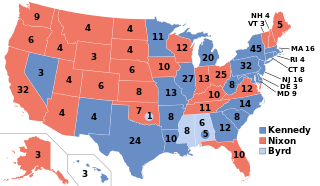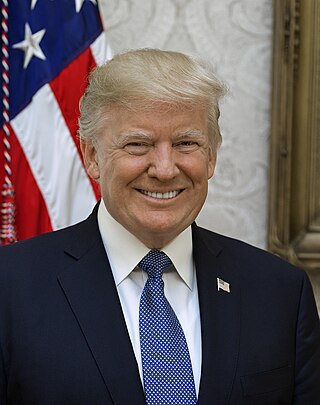| |||||||||||||||||||||
All 138 seats in the Chamber of Deputies 70 seats needed for a majority | |||||||||||||||||||||
|---|---|---|---|---|---|---|---|---|---|---|---|---|---|---|---|---|---|---|---|---|---|
| |||||||||||||||||||||
| |||||||||||||||||||||
 |
|---|
|
| Constitution |
Parliamentary elections were held in Iraq on 15 June 1948 to elect the members of the Chamber of Deputies. [1] The majority of seats were won by independents.
| |||||||||||||||||||||
All 138 seats in the Chamber of Deputies 70 seats needed for a majority | |||||||||||||||||||||
|---|---|---|---|---|---|---|---|---|---|---|---|---|---|---|---|---|---|---|---|---|---|
| |||||||||||||||||||||
| |||||||||||||||||||||
 |
|---|
|
| Constitution |
Parliamentary elections were held in Iraq on 15 June 1948 to elect the members of the Chamber of Deputies. [1] The majority of seats were won by independents.
 | ||
|---|---|---|
| Party | Seats | |
| Iraqi Independence Party | 5 | |
| National Democratic Party | 2 | |
| Liberal Party | 1 | |
| Independents | 130 | |
| Total | 138 | |
| Source: Nohlen et al. | ||

An election is a formal group decision-making process by which a population chooses an individual or multiple individuals to hold public office.

Presidential elections were held in the United States on November 7, 2000. Republican nominee Governor George W. Bush of Texas, the eldest son of 41st U.S. President George H. W. Bush, narrowly defeated incumbent Democratic Vice President Al Gore. It was the fourth of five U.S. presidential elections, and the first since 1888, in which the winning candidate lost the popular vote, and is considered one of the closest U.S. presidential elections in history, with long-standing controversy about the result. Gore conceded the election on December 13 after the Supreme Court issued its decision.

Presidential elections were held in the United States on November 5, 1996. Incumbent Democratic President Bill Clinton and his running mate, incumbent Democratic Vice President Al Gore were re-elected to a second and final term, defeating the Republican ticket of former Senate Majority Leader Bob Dole and former Secretary of Housing and Urban Development Jack Kemp and the Reform ticket of businessman Ross Perot and economist Pat Choate.

Presidential elections were held in the United States on November 8, 1960. The Democratic ticket of Senator John F. Kennedy and his running mate, Senate Majority Leader Lyndon B. Johnson, narrowly defeated the Republican ticket of incumbent Vice President Richard Nixon and his running mate, U.N. Ambassador Henry Cabot Lodge Jr. This was the first election in which 50 states participated, marking the first participation of Alaska and Hawaii, and the last in which the District of Columbia did not. This made it the only presidential election in which the threshold for victory was 269 electoral votes. It was also the first election in which an incumbent president—in this case, Dwight D. Eisenhower—was ineligible to run for a third term because of the term limits established by the 22nd Amendment.

In the United States, the Electoral College is the group of presidential electors that is formed every four years during the presidential election for the sole purpose of voting for the president and vice president. This process is described in Article Two of the Constitution. The number of electoral votes exercised by each state is equal to that state's congressional delegation which is the number of Senators (two) plus the number of Representatives for that state. Each state appoints electors using legal procedures determined by its legislature. Federal office holders, including senators and representatives, cannot be electors. Additionally, the Twenty-third Amendment granted the federal District of Columbia three electors. A simple majority of electoral votes is required to elect the president and vice president. If no candidate achieves a majority, a contingent election is held by the House of Representatives, to elect the president, and by the Senate, to elect the vice president.

The Indian National Congress (INC), colloquially the Congress Party or simply the Congress, is a political party in India with deep roots in most regions of India. Founded on 28 December 1885, it was the first modern nationalist movement to emerge in the British Empire in Asia and Africa. From the late 19th century, and especially after 1920, under the leadership of Mahatma Gandhi, the Congress became the principal leader of the Indian independence movement. The Congress led India to independence from the United Kingdom, and significantly influenced other anti-colonial nationalist movements in the British Empire.

Presidential elections were held in the United States on November 4, 2008. The Democratic ticket of Barack Obama, the junior senator from Illinois, and Joe Biden, the senior senator from Delaware, defeated the Republican ticket of John McCain, the senior senator from Arizona, and Sarah Palin, the governor of Alaska. Obama became the first African American to be elected to the presidency. This was the first election since 1952 in which neither the incumbent president nor vice president was on the ballot, as well as the first election since 1928 in which neither ran for the nomination.

The Communist Party of India (Marxist) (abbreviated as CPI(M)) is a communist political party in India. It is the largest communist party in India in terms of membership and electoral seats, and one of the national parties of India. The party was founded through a splitting from the Communist Party of India in 1964 and it quickly became the dominant faction.

Presidential elections were held in the United States on November 2, 2004. Incumbent Republican President George W. Bush and his running mate, incumbent Vice President Dick Cheney, were re-elected to a second term. They narrowly defeated the Democratic ticket of John Kerry, a senator from Massachusetts, and his running mate John Edwards, a senator from North Carolina.
An independent, non-partisan politician, or non-affiliated politician is a politician not affiliated with any political party or bureaucratic association. There are numerous reasons why someone may stand for office as an independent.

Donald John Trump is an American politician, media personality, and businessman who served as the 45th president of the United States from 2017 to 2021. Having won the 2024 presidential election as the nominee of the Republican Party, he is the president-elect and will be inaugurated as the 47th president on January 20, 2025.
The New Democratic Party is a federal political party in Canada. Widely described as social democratic, the party sits at the centre-left to left-wing of the Canadian political spectrum, with the party generally sitting to the left of the Liberal Party. The party was founded in 1961 by the Co-operative Commonwealth Federation (CCF) and the Canadian Labour Congress (CLC).

Presidential elections were held in the United States on November 6, 2012. Incumbent Democratic President Barack Obama and his running mate, incumbent Vice President Joe Biden, were elected to a second term. They defeated the Republican ticket of former Governor of Massachusetts Mitt Romney and U.S. Representative Paul Ryan of Wisconsin, who later became Speaker of the House of Representatives. As of 2024, this is the most recent presidential election in which an incumbent president was reelected.

Presidential elections were held in the United States on November 8, 2016. The Republican ticket of businessman Donald Trump and Indiana governor Mike Pence defeated the Democratic ticket of former secretary of state and former first lady Hillary Clinton and Virginia junior senator Tim Kaine, in what was considered one of the biggest political upsets in American history. It was the fifth and most recent presidential election in which the winning candidate lost the popular vote. It was also the sixth and most recent presidential election in U.S. history in which both major party candidates were registered in the same home state.

Presidential elections were held in the United States on November 3, 2020. The Democratic ticket of former vice president Joe Biden and the junior U.S. senator from California Kamala Harris defeated the incumbent Republican president Donald Trump, and vice president Mike Pence. The election took place against the backdrop of the global COVID-19 pandemic and related recession. The election saw the highest voter turnout by percentage since 1900. Biden received more than 81 million votes, the most votes ever cast for a presidential candidate in U.S. history.

The 2024 United States elections were held on Tuesday, November 5, 2024. In the presidential election, former Republican President Donald Trump, seeking a non-consecutive second term, defeated the incumbent Democratic Vice President Kamala Harris. Republicans also gained control of the Senate and held narrow control of the House of Representatives, winning a government trifecta for the first time since 2016.

The 2024 United States Senate elections were held on November 5, 2024, as part of the 2024 United States elections. Regularly scheduled elections were held for 33 out of the 100 seats in the U.S. Senate, plus one seat in a special election. Senators are divided into 3 classes whose 6-year terms are staggered so that a different class is elected every 2 years. Class 1 senators faced election in 2024. Republicans flipped four Democratic-held seats, regaining a Senate majority for the first time since 2021.

Presidential elections were held in the United States on November 5, 2024. The Republican Party's ticket—Donald Trump, who was the 45th president of the United States from 2017 to 2021, and JD Vance, the junior U.S. senator from Ohio—defeated the Democratic Party's ticket—Kamala Harris, the incumbent vice president, and Tim Walz, the governor of Minnesota. Trump and Vance are scheduled to be inaugurated as the 47th president and the 50th vice president on January 20, 2025, after their formal election by the Electoral College.

The 2021 Canadian federal election was held on September 20, 2021, to elect members of the House of Commons to the 44th Canadian Parliament. The writs of election were issued by Governor General Mary Simon on August 15, 2021, when Prime Minister Justin Trudeau requested the dissolution of parliament for a snap election.

The 2024 United States House of Representatives elections were held on November 5, 2024, to elect the 435 representatives of the United States House of Representatives, as well as 6 non-voting delegates from the District of Columbia and inhabited U.S. territories. The elections were held together with other federal, state, and local elections, including the U.S. presidential election and elections to the Senate, as part of the 2024 United States general election. The winners of this election will serve in the 119th United States Congress, with seats apportioned among states based on the 2020 United States census.